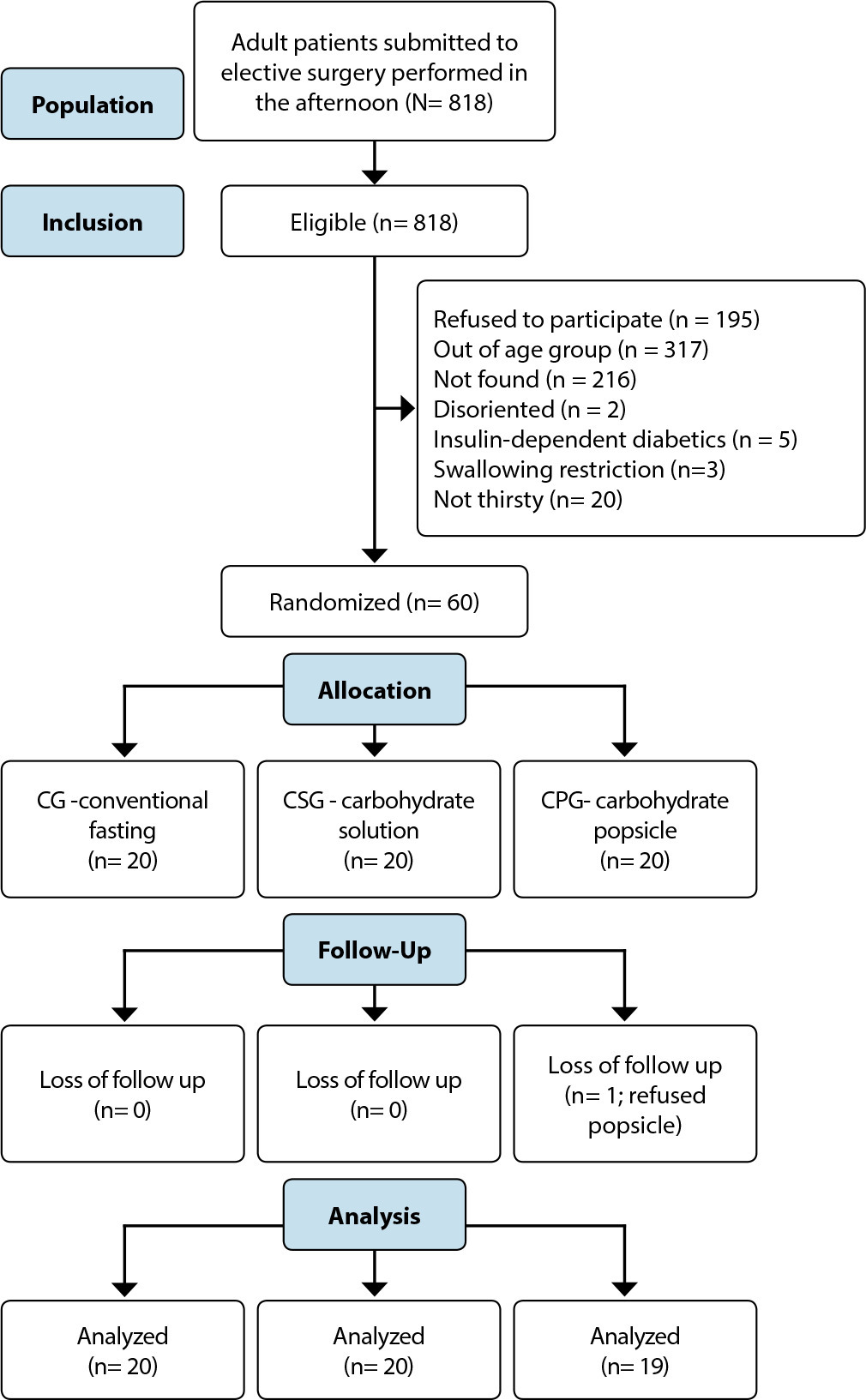-
ORIGINAL ARTICLE
Effects of carbohydrate use on preoperative thirst: a randomized clinical trial
Revista Brasileira de Enfermagem. 2022;75(5):e20210355
07-22-2022
Resumo
ORIGINAL ARTICLEEffects of carbohydrate use on preoperative thirst: a randomized clinical trial
Revista Brasileira de Enfermagem. 2022;75(5):e20210355
07-22-2022DOI 10.1590/0034-7167-2021-0355
Visualizações0Ver maisABSTRACT
Objectives:
to evaluate the effectiveness of carbohydrate popsicles, carbohydrate solution, and usual care (fasting) on the intensity and discomfort of preoperative thirst.
Methods:
a randomized clinical trial with 60 preoperative patients aged between 18 and 60 years, randomized into three groups: control (fasting), carbohydrate solution (100 ml), and carbohydrate popsicle (100 ml). The outcomes were thirst intensity and discomfort.
Results:
there was a difference between groups for final thirst intensity (p = 0.01) and final thirst discomfort (p = 0.001). The effect size for both the Solution Group and the Popsicle Group was robust: 0.99 and 1.14, respectively.
Conclusions:
the groups that received the carbohydrate fasting abbreviation showed a reduction in thirst discomfort compared to the control group. The carbohydrate popsicle proved more effective in reducing the intensity of thirst. NCT: 3.209.283

-
PESQUISA
Fasting of less than eight hours in urgent and emergency surgeries versus complication
Revista Brasileira de Enfermagem. 2016;69(4):712-717
01-01-2016
Resumo
PESQUISAFasting of less than eight hours in urgent and emergency surgeries versus complication
Revista Brasileira de Enfermagem. 2016;69(4):712-717
01-01-2016DOI 10.1590/0034-7167.2016690414i
Visualizações0Ver maisABSTRACT
Objective:
to verify the occurrence of intraoperative and postoperative complications in patients undergoing urgent and emergency surgical procedures between January and December 2012, with fasting time of less than 8 hours.
Method:
a quantitative study was conducted, of the retrospective cohort type, through the analysis of medical records.
Results:
we included 181 records of patients undergoing surgical procedures with average duration of 59.4 minutes. Fractures correction surgeries stood out, totalling 32% of cases. We observed complications in 36 patients (19.9%), vomiting being the most prevalent (47.2%); followed by nausea (16.7%); need for blood transfusion (13.9%); surgical site infection (11.1%); and death (11.1%). The average fasting time was 133.5 minutes. The fasting time showed no statistically significant correlation with the complications investigated.
Conclusion:
intraoperative and postoperative complications were associated with the clinical conditions of the patients and not with the fasting time.



